Archive
2021
KubaParis
Grind&Shine Inc. by Cake&Cash presents
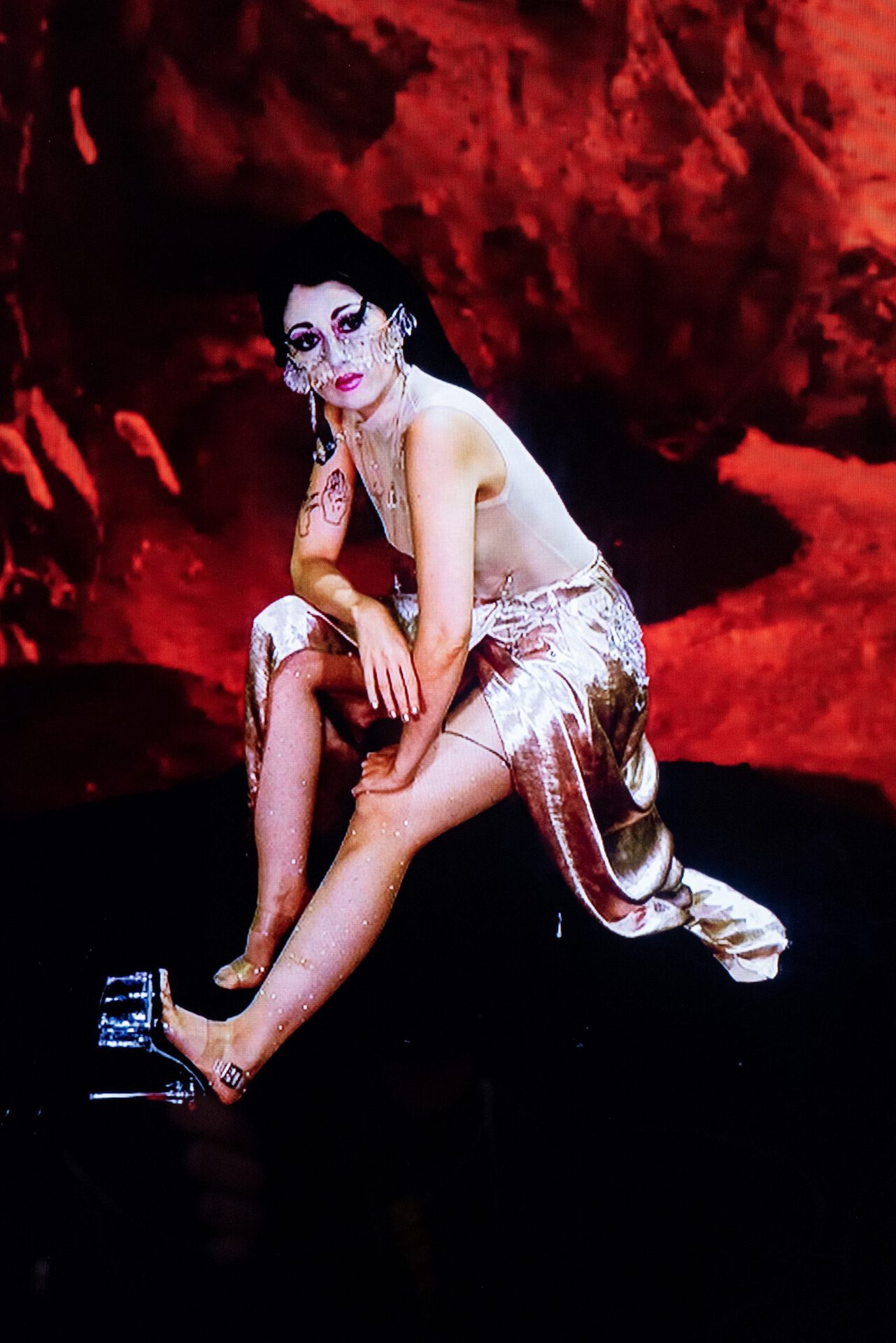
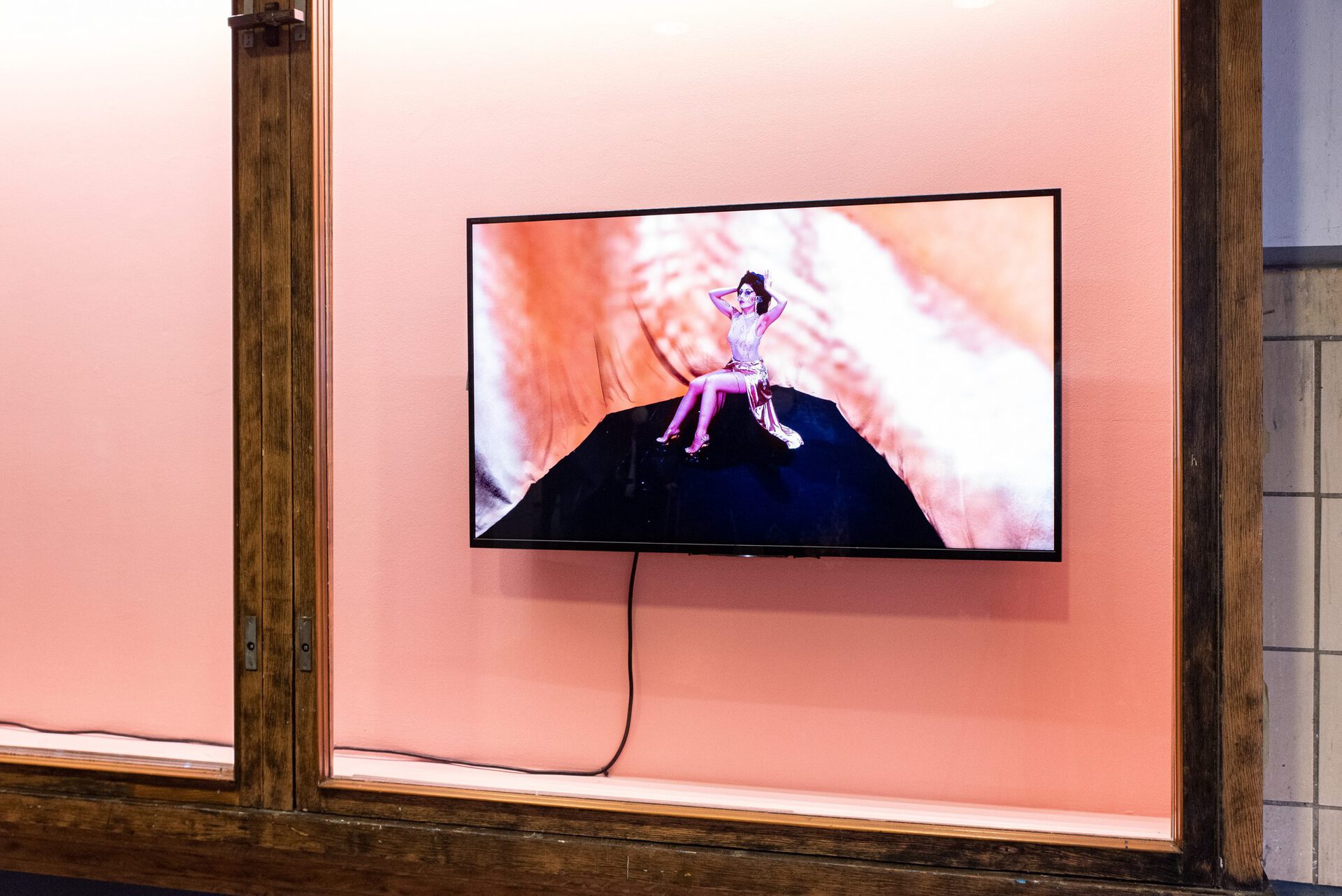
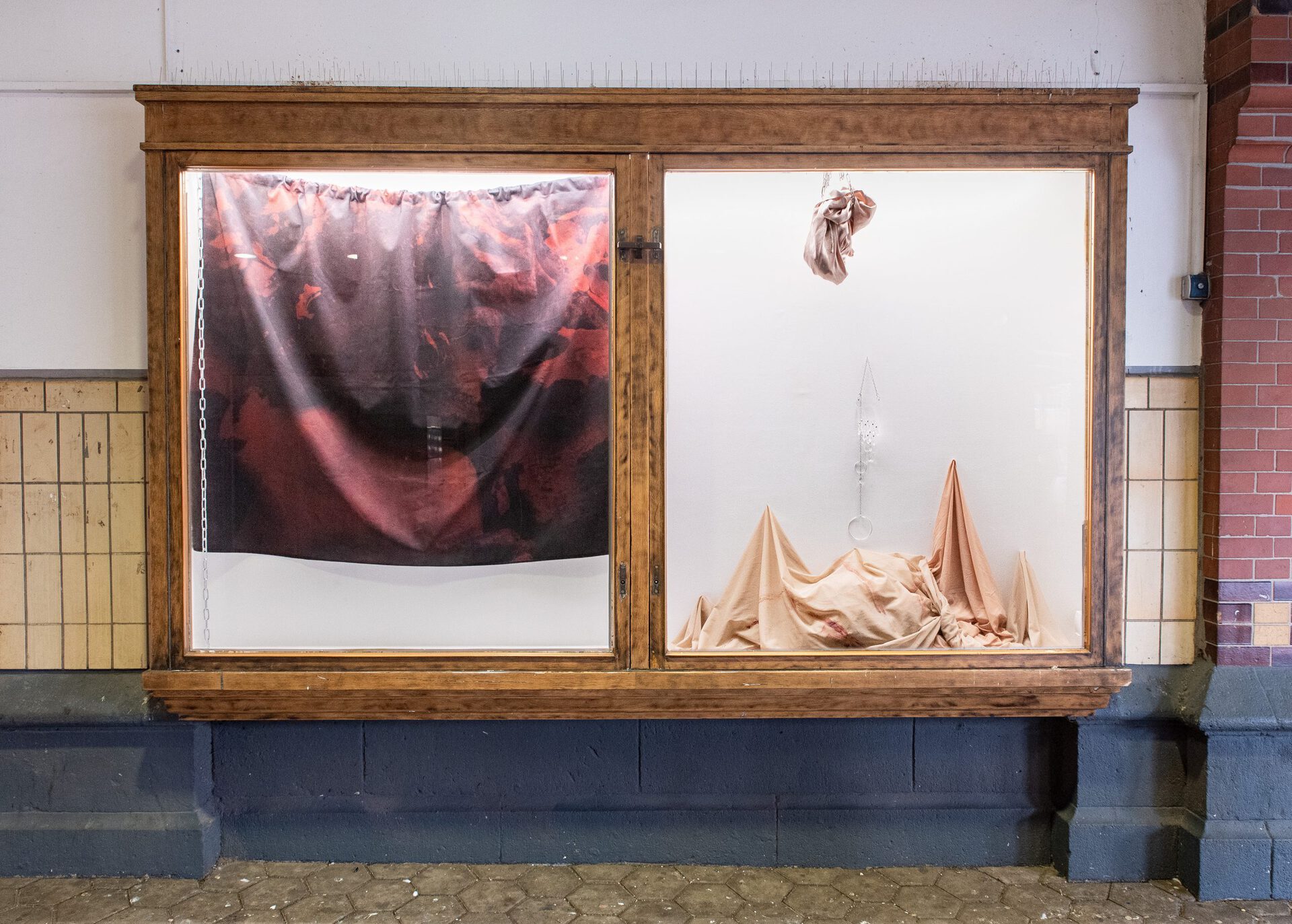
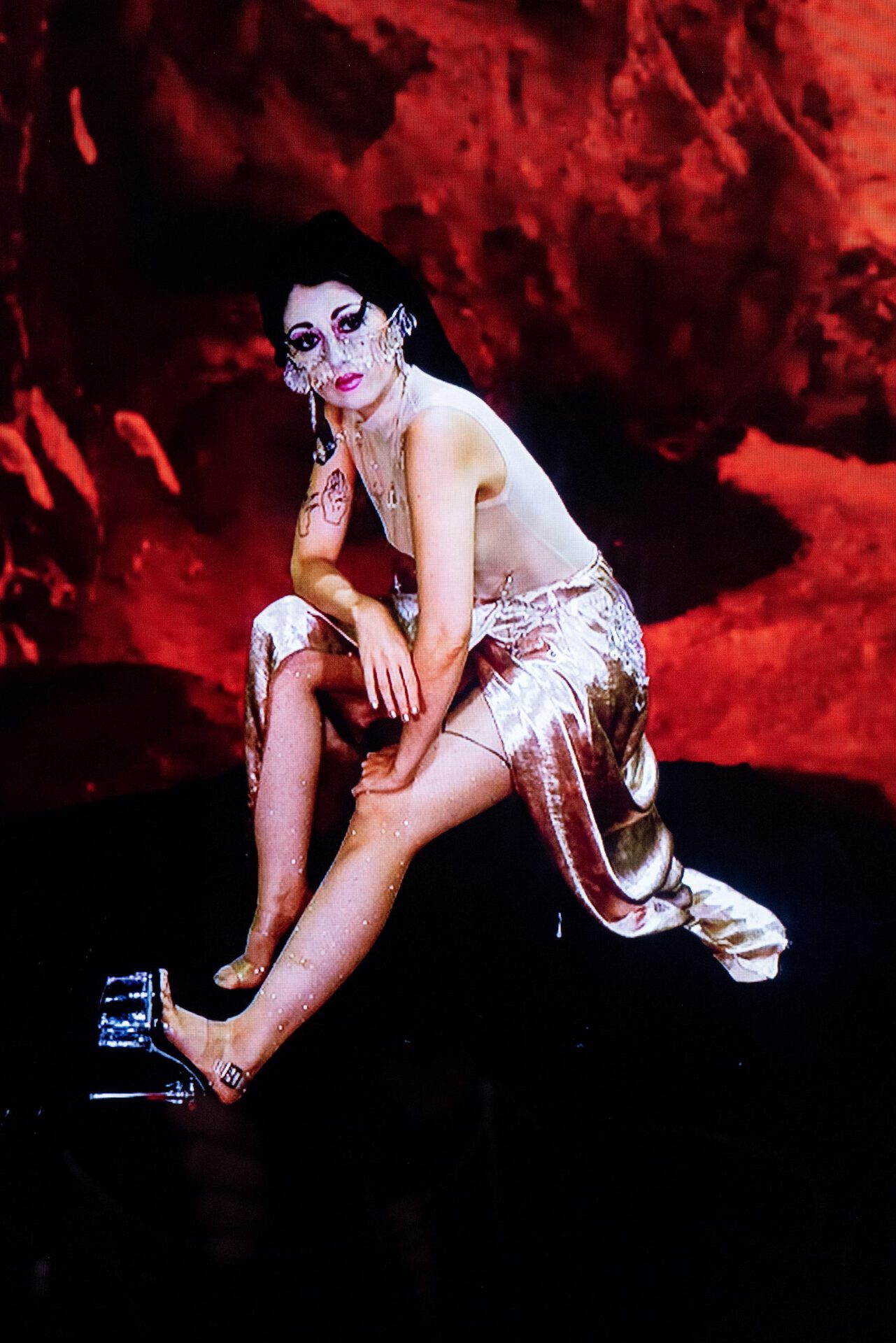
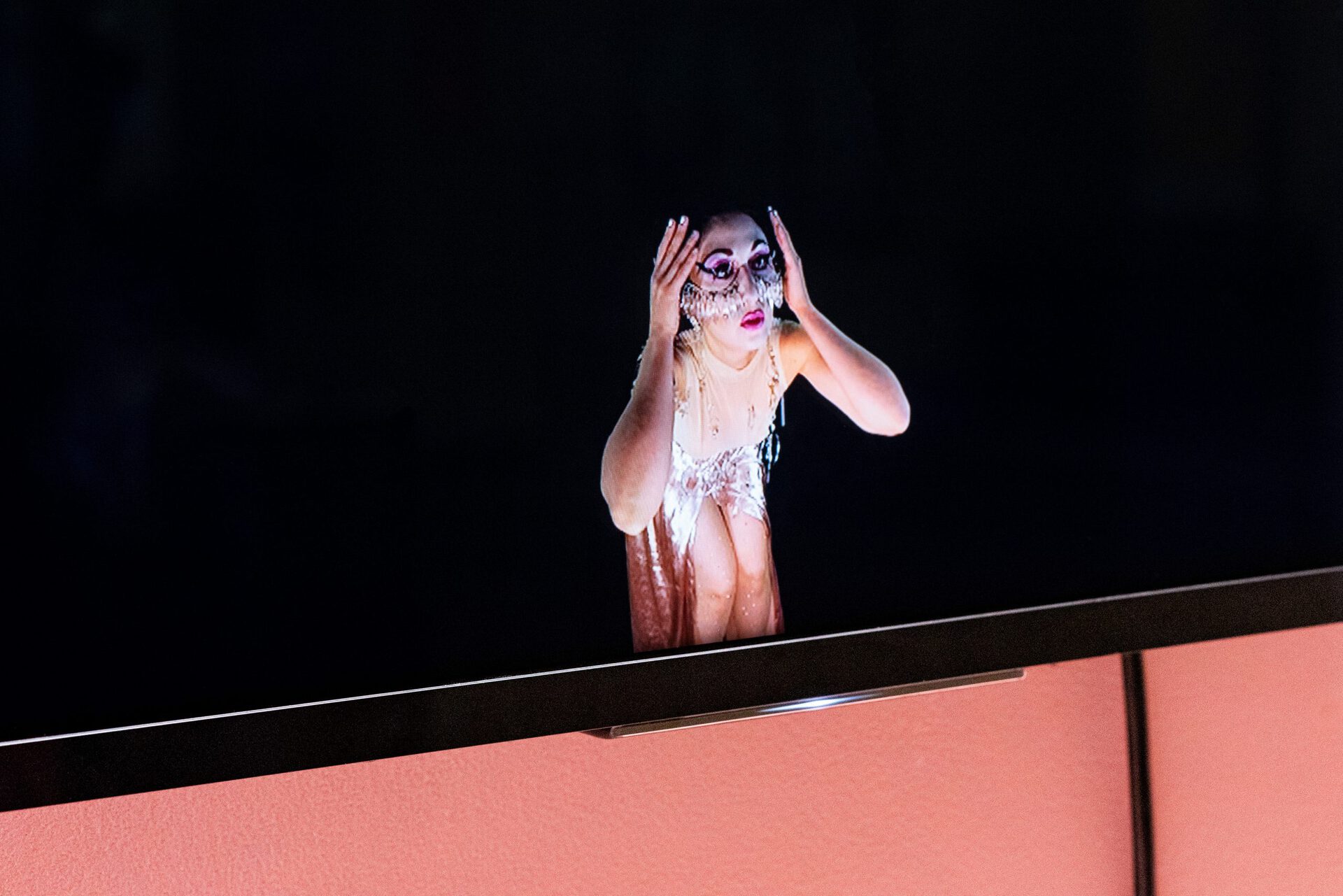
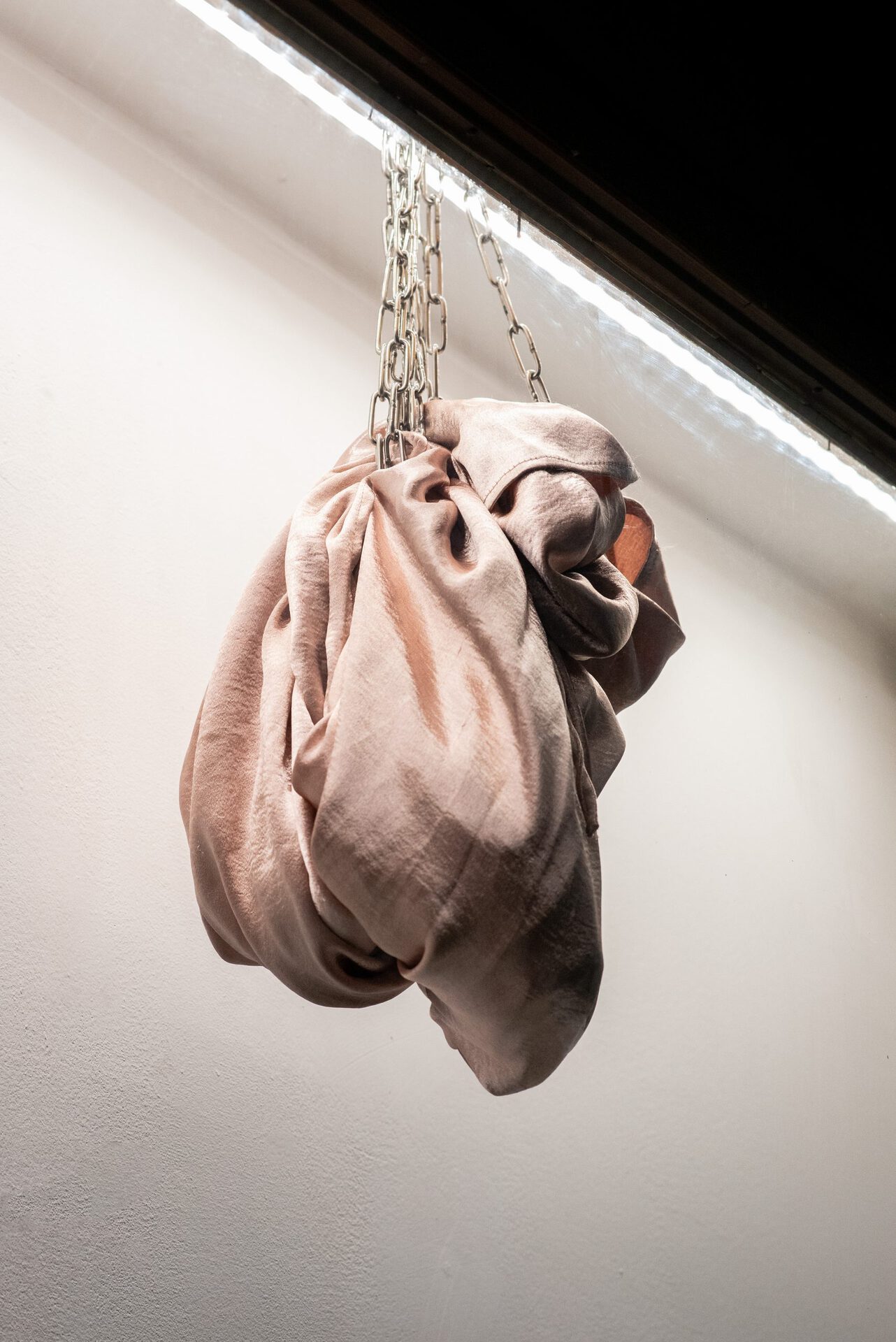
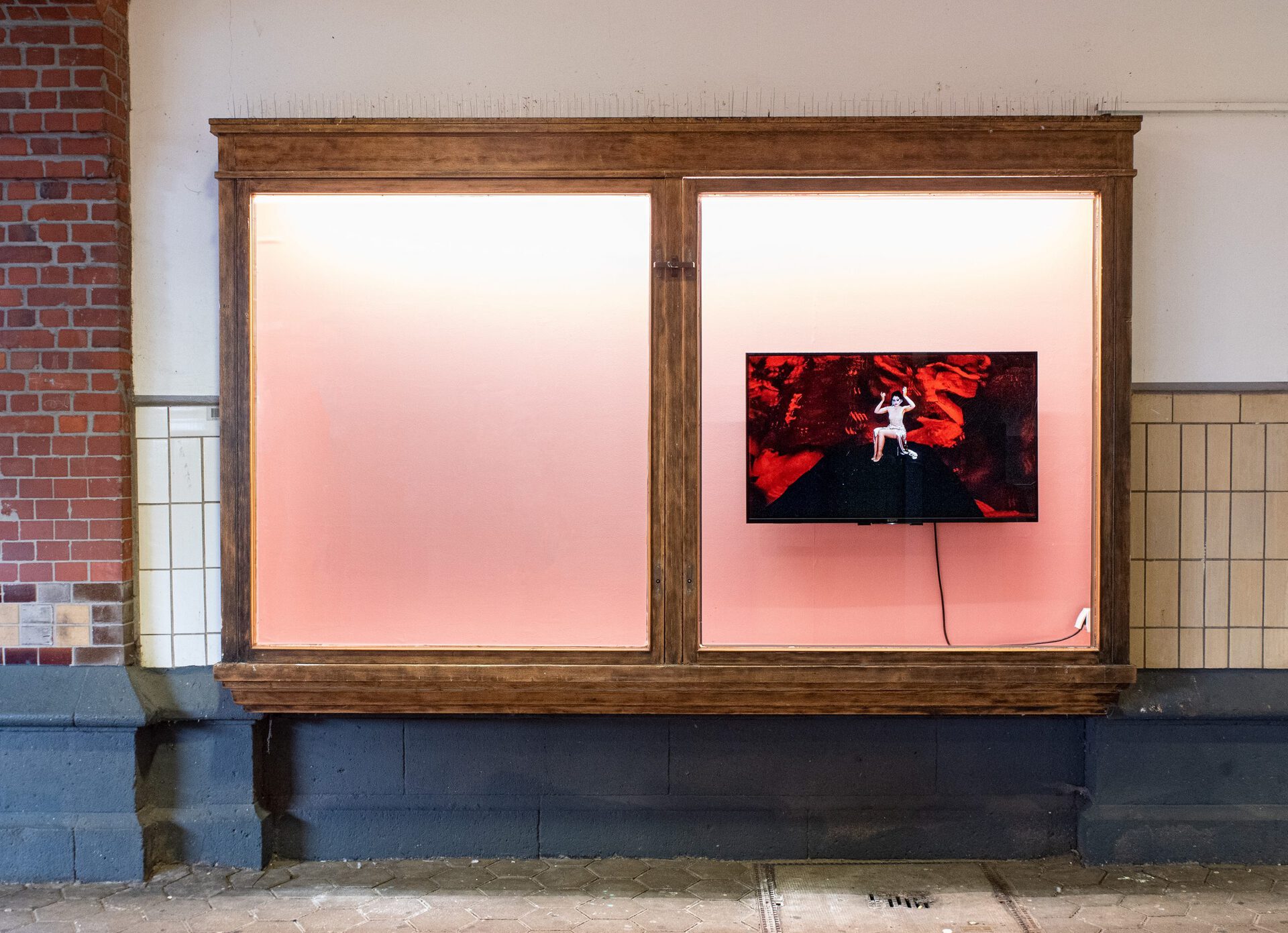
Location
Kunstverein Harburger BahnhofDate
26.11 –08.01.2022Curator
Cake&Cash CuratorialPhotography
Maik GräfSubheadline
Rosh Zeeba is the third exhibition curated by Cake&Cash to open in the showcases of the Kunstverein Harburger Bahnhof. The title of her work Opulent Silence already describes a constant that is important for Zeeba's practice: bringing together what supposedly does not belong together. In the two-part video work, tiny figures inspired by Persian miniatures perform recurring sequences of movements. In the continuous loops of the videos, the choreographies are woven together into mantras whose meanings remain open. In Zeeba's mind, multiplicity does not only refer to diversity. Rather, it is about one's own transit identities, about glitching between worlds and genders. Questions about one's own visibility despite or because of being in-between, as well as the analysis of their inner and outer layers, are central aspects of Zeeba's work. However, instead of deconstructing the layers and exposing them individually, they are embraced and celebrated in all their opulence and overlap. The process of acknowledging one's own ambiguity, which can also mean disjointedness, and defending it against Eurocentrism and minimalism requires enormous courage and strength. In Opulent Silence, silence and shyness also get their space.Text
Rosh Zeeba is the third exhibition curated by Cake&Cash to open in the showcases of the Kunstverein Harburger Bahnhof. The title of her work Opulent Silence already describes a constant that is important for Zeeba's practice: bringing together what supposedly does not belong together. In the two-part video work, tiny figures inspired by Persian miniatures perform recurring sequences of movements. The choreographies are woven together in the continuous loops of the videos to form mantras whose meanings remain open.
Multiplicity, in Zeeba's mind, is not just about diversity. Rather, it is about one's own transit identities, about glitching between worlds and genders. Questions about one's own visibility despite or because of being in-between, as well as the analysis of their inner and outer layers, are central aspects of Zeeba's work. However, instead of deconstructing the layers and exposing them individually, they are embraced and celebrated in all their opulence and overlap. The process of acknowledging one's own ambiguity, which can also mean disjointedness, and defending it against Eurocentrism and minimalism requires enormous courage and strength. In Opulent Silence, silence and shyness also get their space.
The body as a house that accompanies Zeeba through the glitch, they also use in their performances to make the parts that make it up visible to the outside world. Instead of being model houses in the colonial-orientalist dreams of others, Zeeba brew their own vision and aesthetic with ingredients of drag, European and Middle Eastern (film) history, and cyberspace that have a clear direction: The future.
Rosh Zeeba (born in Tehran) work in the fields of performance, video and film. They studied applied theater in Giessen and time-based media and film at the Hochschule für bildende Künste in Hamburg. Using extended media through a performative approach allows them to rethink the idea of storytelling and open up the realm of queer orientalist futurism. Zeeba engage in post-dramatic cinema, post-cyberfeminism, and queer theory. Their work and talks have taken place at Blicke Film Festival (Bochum, GER), Balkan Can Cinema (Athens, GRK), Tetem (Enschede/ (NL), MOM art space and RaumLinksRechts (Hamburg, GER), Filmarche, Berlin, (GER), Thessaloniki Queer Arts Festival (GRK), among others.
Laura Mahnke